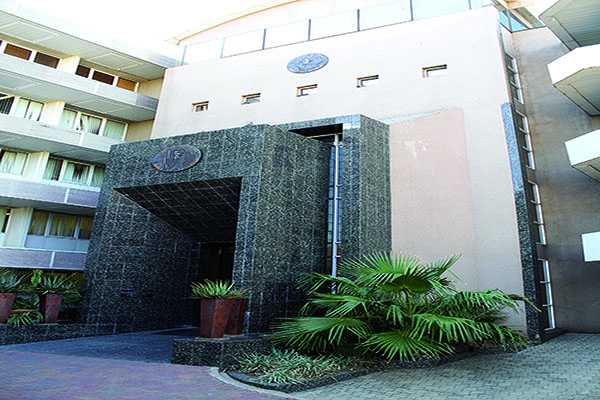‘We support homegrown banks’ - BoB
Bank of Botswana this week reiterated its earlier response that it supports the creation of indigenous commercial banks in Botswana.
This comes hot on the heels of Barclays plc transaction which cemented South Africa’s vice-like grip control of the multi-billion Pula banking industry in the region.
The country currently has ten commercial banks and three statutory banks being Botswana Savings Bank (BSB), National Development Bank (NDB) and Botswana Buildings Society (BBS).
All the ten commercial banks are in the hands of foreign investors, with the most value attributed to South African-owned banks. “Like everyone else, we (BoB) welcome an indigenous bank. However, it is important to note that, we are tasked with ensuring the banking industry is safe and sound,” the central bank Governor, Moses Pelaelo old the press on Tuesday.
He was responding to questions from business reporters after Barclays plc disposed part of its shareholding to Barclays Africa, in a transaction which was exclusive to South African investors. Barclays Africa owns Barclays Bank of Botswana. This effectively means Africa’s most advanced economy is the biggest investor in the lucrative banking sector.
Pelaelo stated that, even though there are no citizen-owned banks, it must be appreciated that some of the commercial banks operating here have listed part of their shares at Botswana Stock Exchange (BSE). This platform has given locals a chance to own shares in the different banks which are listed such as First National Bank Botswana and Standard Chartered Bank Botswana.
Over the years, some local investors have tried, but in vain to gain entry into the multibillion Pula sector which is half of the country’s Gross Domestic Product (GDP), after the central bank rejected their applications. Letshego Holdings Limited is one such unfortunate applicant whose application was put on ice for undisclosed reasons.
According to the central bank Governor, ‘two or three’ companies have applied to be licensed as commercial banks in the past few years. Pelaelo made it clear that, most of the applications were turned down on the aspect of ‘strategy versus resources’ and not necessarily financial.
P5 million (less than $1 million) is needed to start a bank in the landlocked-country where banks are competing to service a population of more than two million. The banking sector’s profitability over the years has increased despite rising competition and weak economic performance.
The BoB annual report for 2016 shows that overall balance sheet of commercial banks climbed by 5, 2 percent from P76, 7billion in 2015. Loans and advances for the same year (2016) also jumped by 5, 7 percent to close the period under review at P49, 7billion.
Pelaelo added that not all profits from these banks are moved out of the country as there has been notable investment by local banks in the domestic economy. On a related matter, BoB has kept the lending rate at 5, 5 percent, for the third time this year. The decision was taken by the bank’s Monetary Policy Committee (MPC) this Tuesday.






